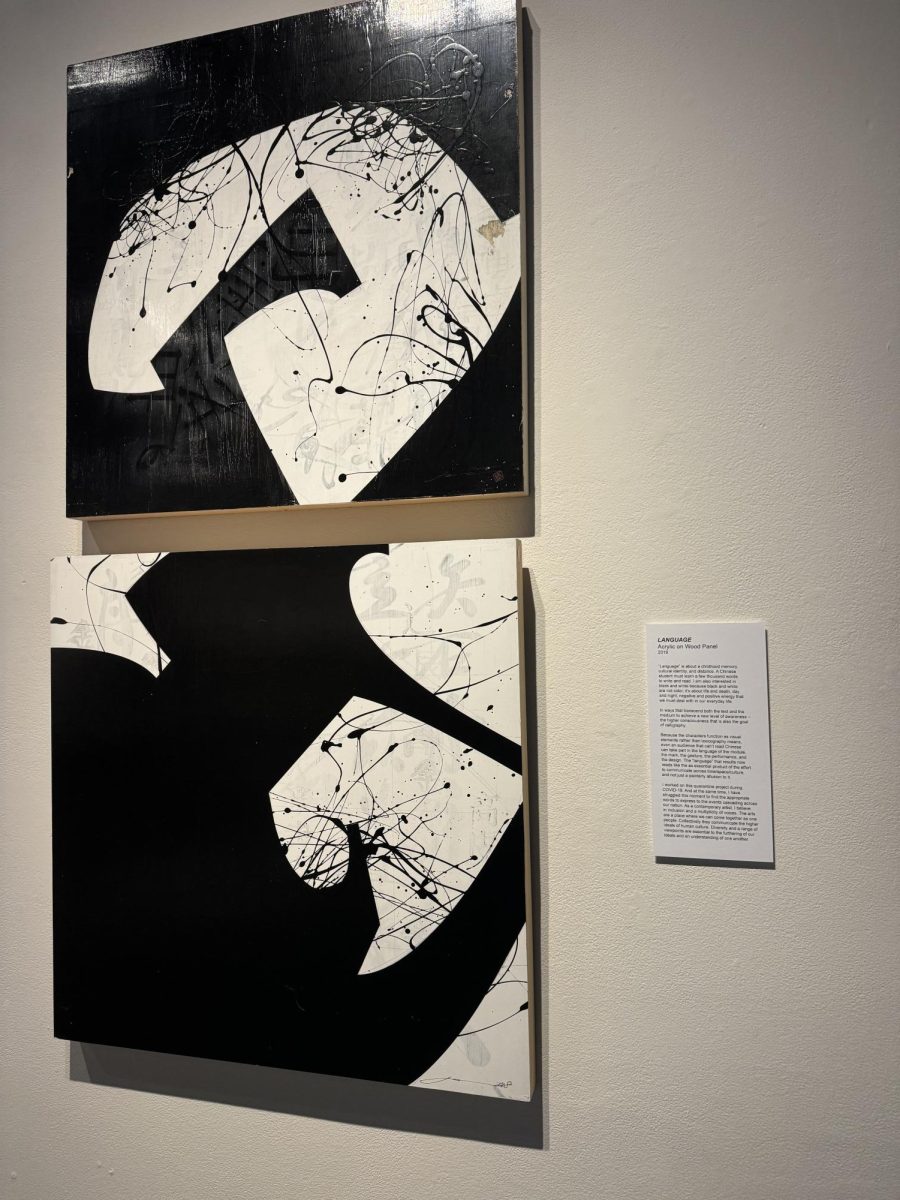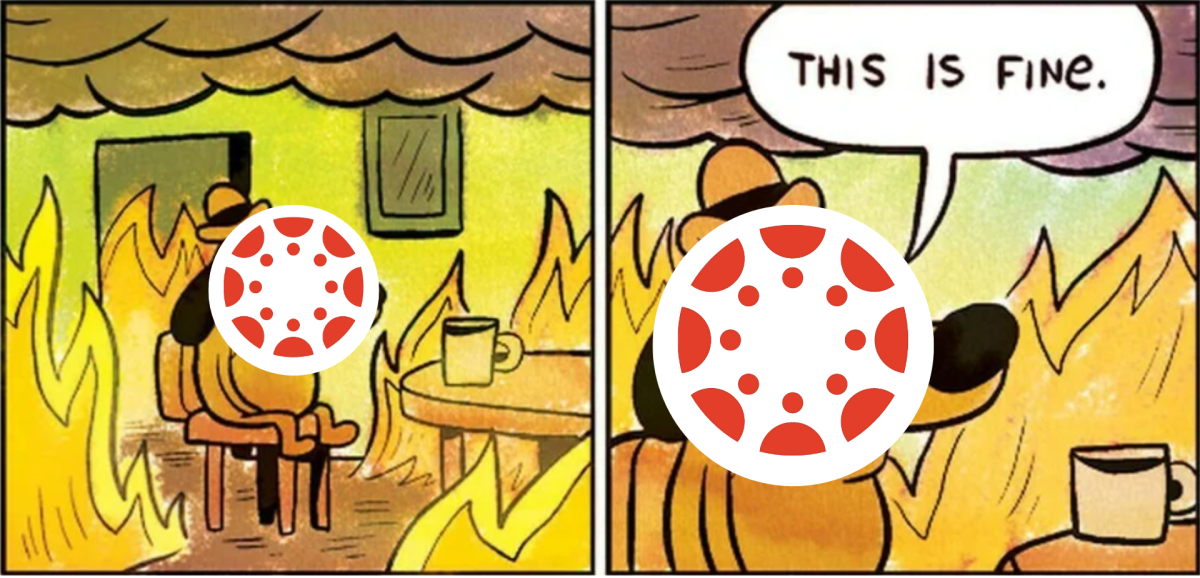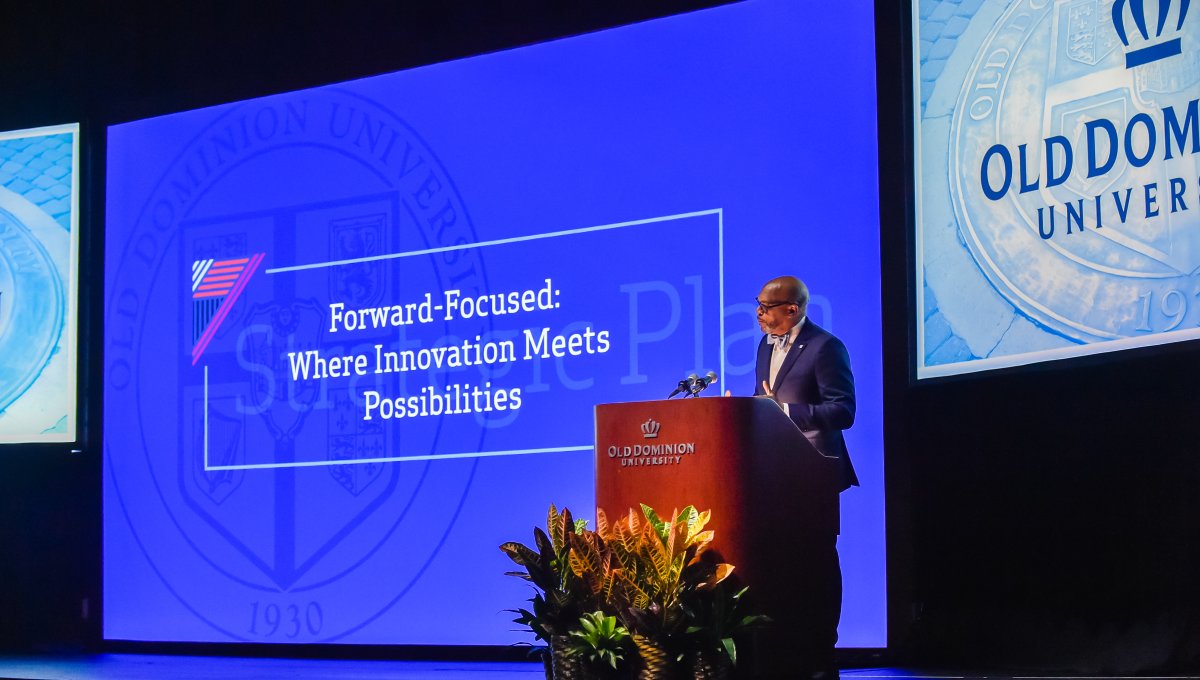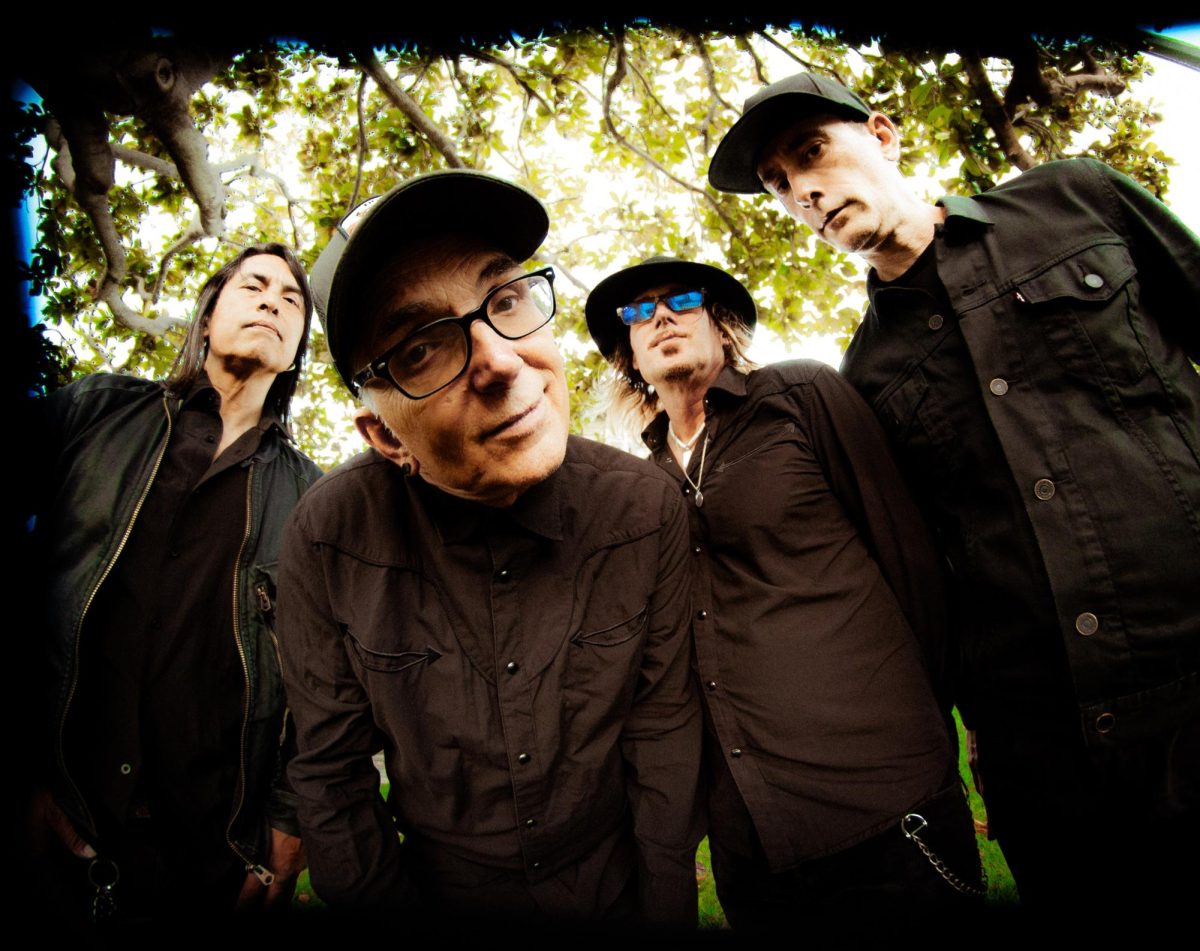What it Means to Be Resilient: Climate Change on Campus
December 14, 2021
Originally posted September 16, 2020.
An Interview with Dr. Wie Yusuf of ODU’s School of Public Service
Coastal resilience or strategies to make coastal communities more adaptable to climate change is a growing issue both on and off Old Dominion University’s campus. As sea level rise threatens vulnerable areas with increased flooding, what Norfolk is experiencing is just the beginning of what’s to come, and the city’s resilience has become a priority.
Over the last decade, not only has the state of Virginia taken aggressive steps to start protecting their coastal communities, but ODU established precedence at a national level by establishing the first Institute for Coastal Adaptation & Resilience (ICAR) in August of 2018.
Located on campus, the institute primarily focuses on the science and practice of coastal resilience. Various programs are housed under the institute including Sea Level Rise & Climate Science, Flooding and the Built Environment, Health Dimensions of Coastal Resilience, and Social Science & Policy.
Dr. Wie Yusuf is a School of Public Service Professor and ICAR’s Assistant Director of Education. Since 2010, Dr. Yusuf has helped lead several initiatives into what has become ICAR today; and she continues to study issues regarding behavioral science and policy as it relates to sea level rise (SLR), flooding, adaptation, and resilience.
Her work began in 2010 when the Climate Change and Sea Level Rise Initiative (CCSLRI) was established by a team of ODU faculty and staff who were determined to research and study all aspects of climate change and SLR. The initiative was led by Dr. Larry P. Atkinson, an eminent, research professor within the oceanography department.
“Larry Atkinson at the time was a professor of oceanography and he led the initiative. One of his jobs was to get faculty excited about the topic and wanting to research the topic,” says Yusuf. “One thing that the initiative did was offer SEED funding that funded project teams to study a related topic. I collaborated with faculty members from psychology, communications, and political science.”
Using this funding, Dr. Yusuf and her colleagues proposed a project to look at legislator’s perspectives and their perceptions about the problem of sea level rise and climate change, and what they found was interesting. Many state legislators felt decisions about climate change should be left to the federal government while other legislators had disagreements on who they thought was trustworthy to give information to about sea level rise.
“There were all these ripple effects that we were seeing, and we wanted to study all these other aspects, and that’s what hooked me in. We did one study and there were so many nuanced findings, and that’s how I got into it,” says Yusuf, “In 2011 was when we got the grant and started working on it and 2012 was when we started doing the survey work as well, so it’s continued from then on.”
In 2015, as Dr. Yusuf was connecting with other faculty members around campus, she discovered something that would be the basis for an even larger network.
“As I was connecting with other faculty around the university, I realized that people across the university are studying climate change, sea level rise, flooding, and community responses to flooding in so many different ways. But we were always connecting,” the professor said.
During the year 2015, Dr. Yusuf says the ODU Office of Research put together a strategic plan to identify areas of focus and they invited faculty to write proposals on the areas they found deserved attention. Yusuf pulled a team together and created a proposal to examine coastal resilience more broadly.
“We were already focusing on climate change and sea level rise, but we realized that when you have a disaster like a hurricane, flooding is only one manifestation of the problem. Flooded homes and how communities of people respond is a really important facet of it too. And so that’s when we came up with the proposal for the ODU Resilience Collaborative,” said Yusuf, “I led the development of that proposal and submitted it to the Office of Research as part of their strategic plan process and they accepted it. They said this made sense. It’s a natural continuation of the work we’re doing.”
The ODU Resilience Collaborative created a network for faculty to share their research and collaborate on projects related to resilience. This inspired many professors to collaborate with other faculty outside of their departments to study more nuanced topics.
“Part of my job within the collaborative was to organize pop ups,” said the professor, “For example, we might have a pop up around pizza and talk about how one professor is doing cool research about recycling plastics and how another is interested in crime and what happened during a disaster. Basically, I was that connector or building block. My goal was to get people talking and see if that could lead to other collaborations, other research, or even teaching a class together,” said Dr. Yusuf said.
As part of the resilience collaborative’s steering committee, Yusuf helped set the stage for creating a historic national institute.
“The resilience collaborative was running on $50,000 a year to host people, connect people, to hold events, and to provide sea grants. This really wasn’t a lot of money, but we were producing great things,” Yusuf said. “The idea was that if we were to become an institute, would we be able to gain national prominence? Would we be able to gain visibility and create more opportunities?”
The national Institute for Coastal Resilience was officially established in August 2018, and Yusuf became the Assistant Director of Education.
“On the education side, we’re interested in how we can educate others about resilience, but it’s not just about formal education,” said Dr. Yusuf. “When I think about the educational part of resilience, it’s the entire university. You can learn about resilience in your dorm room, your home, and not just with textbooks, but you learn by thinking about how this applies to the real world? How does this apply to a career I’m interested in?”
Michelle Covi, ICAR’s Assistant Director of Outreach and worked with Yusuf to create a university-community partnership where their goal was to help connect faculty, staff, and student groups with community organizations.
“Community organizations have needs,” Yusuf explains, “They might need someone to help them with an educational campaign about litter, or they might need someone to create an afterschool program to help kids learn about the environment. And at the university, we have expertise, we have passion, and we have kids who have all this knowledge just waiting to put it into practice. We also have staff who are really good at project management and organization. We have the resources to meet our community’s needs.”
One of the primary goals of the partnership was to create more “service-learning opportunities” for professors to have projects in their classrooms as well as student organizations offering extra curricular or co curricular service projects including internships. When it comes to incorporating resilience into the educational environment, Dr. Yusuf finds that there are almost endless opportunities to do so.
The professor believes that the resilience collaborative was “loose” in the sense that it lacked a formal curriculum to implement resilience into the classroom including how two professors can formally “co-teach” a class.
“There was no institutional mechanism to support that,” said Dr. Yusuf. “ICAR was really designed to provide institutional support so that faculty could do bigger and better things. That was the idea behind the institute.”
ICAR is now in the process of recruiting and hiring a director for the Institute, which Dr. Yusuf thinks would be a great addition to their team.
“One of the things we struggle a little bit with is that we’re kind of doing this part-time,” Yusuf says, “We’re all faculty members so we still have to teach and meet with our students. That’s why it’s so exciting that we’re looking for a director, because this will be his or her full-time job.”
Dr. Yusuf thinks that even without a director, the institute has been successful, but she also believes that what they haven’t done as well is being able to engage students.
“We haven’t gained a wider recognition across the university that ICAR exists,” Yusuf says, “And that ICAR is here to create these learning opportunities for students, and to create majors where students can pursue careers and educational opportunities.”
The Institute hopes to bring more students in to research resilience alongside faculty, become involved in service projects on and off campus, and even become an intern or student worker. Dr. Yusuf thinks the opportunities are endless when it comes to learning about resilience and applying it to the real world at ODU.
ICAR is just in the beginning stages of not only becoming something historically significant for the university, but for the city of Norfolk as well.







